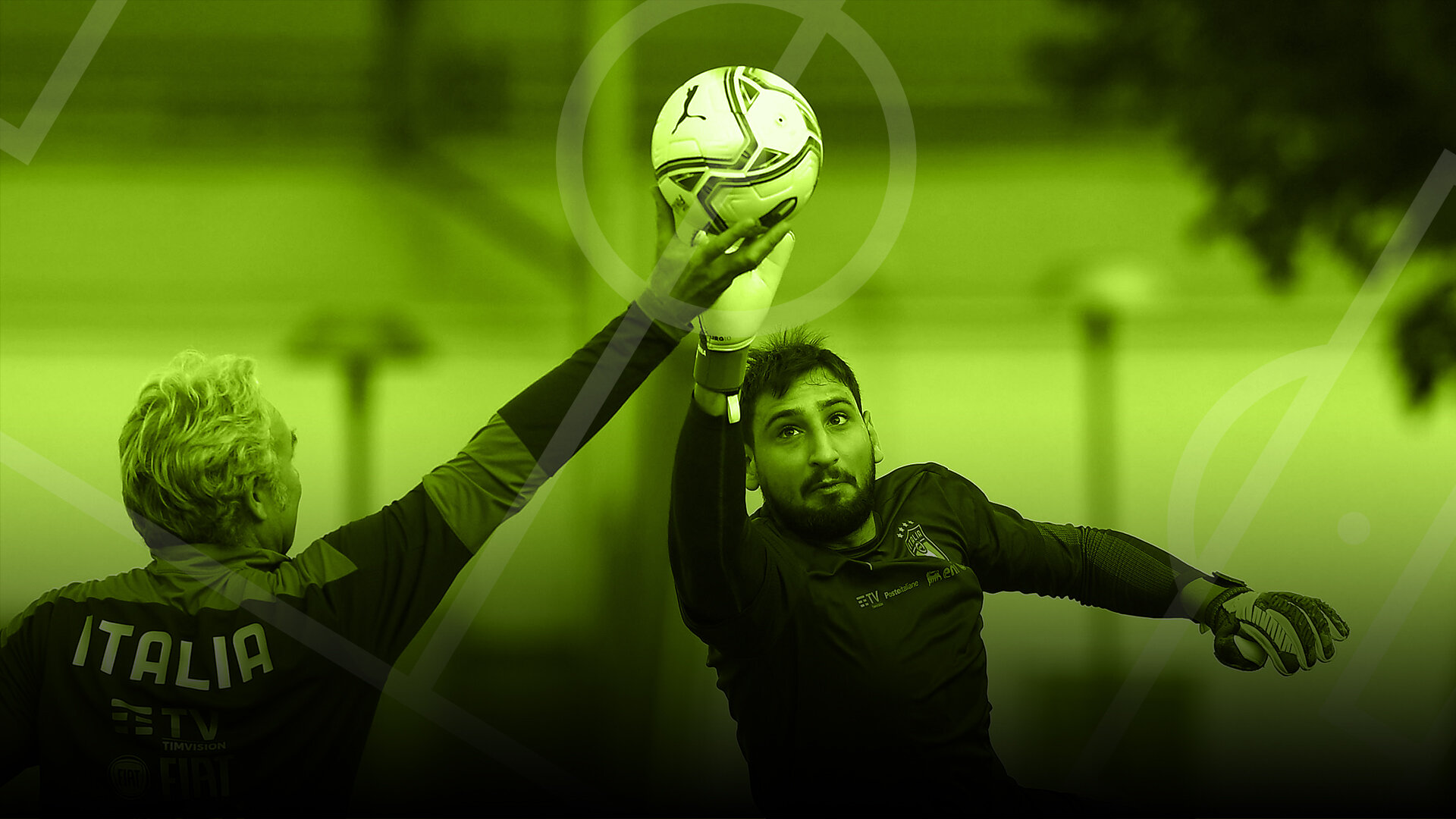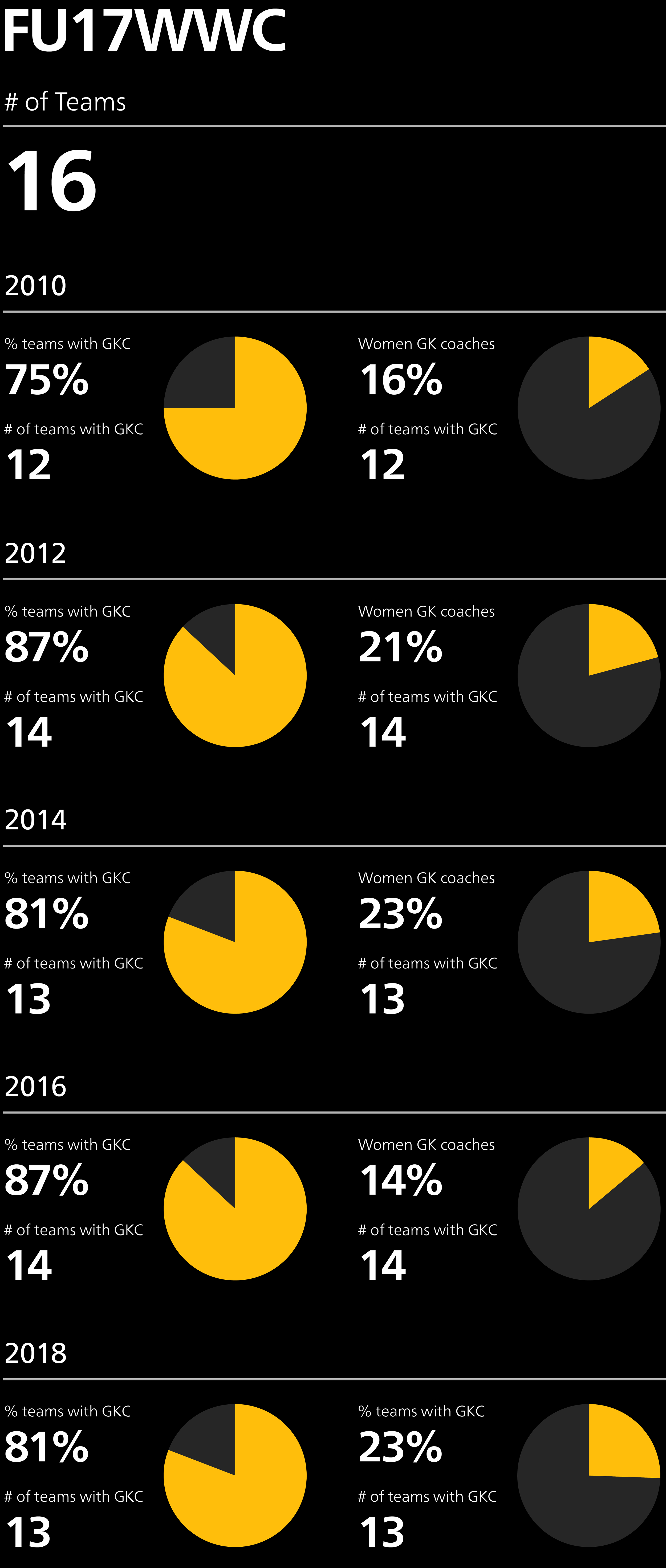
The importance of a Goalkeeper Coach
The importance of a goalkeeper coach
In today's football, the goalkeeper's position is increasingly critical for success. Not only because of the saves or the number of clean sheets, but also when it comes to starting to play from the box, combining with other teammates or setting the defense before free kicks. It is practically impossible for any team to achieve its objectives if it does not have a good guard between the posts.
Not only his importance has boomed in the pitch, but also in terms of player valuation; nowadays, clubs are willing to make large investments to acquire the best goalkeepers in the world. Both Chelsea and Liverpool in recent years signed goalkeepers which rank among the most expensive in football history.
What makes a goalkeeper great? For Pascal Zuberbühler, Swiss former goalkeeper, there are several things. “The goalkeeper, in his more natural state, must be a game winner, an athlete that encompasses power, agility, decision making, reaction and speed. An athlete that can cope with all the demands of his environment with intense focus and mental strength”.
“I think the image of the goalkeeper is changing but it is a slow process. We still have goalkeepers in the game that are purely shot-stoppers and goal-kick takers, and I think this is because we have coaches that either facilitate or deliver poor information to goalkeepers. Therefore, this harms the “game winner” that you need your goalkeeper to be” Zuberbühler claims. But who is responsible for that?
The expectations put on the goalie are massive, so, the main questions here are: what a head coach really knows about the role of a goalkeeper, beyond being a shot blocker? Are they really taking advantage of everything a goalkeeper has to offer to the team or are they wasting their potential? Are they limiting their own teams without even noticing it? Should the goalkeeper coaches have a more critical and decisive role?
Zuberbühler has extensive experience, not only as a player, but also as a goalkeeper trainer in the English club Fulham FC 2008 to 2011 and Derby County, from 2015 to 2017, before joining FIFA as a goalkeeper specialist. He has been at both sides of the fence and he believes that things need to change for goalie coaches.
With their importance and value constantly increasing, goalkeeper coaches experience a very different situation within the team dynamics. According to Zuberbühler, “goalkeeper coaches should not just help in warm-ups, but rather have a more active role within the technical team. Today, these professionals are not really integrated into the technical team or have the recognition they deserve.”
The situation is not the same in all countries and leagues. Normally, major league teams have more resources and more specialized teams, so the role of goalkeeper coaches carries more responsibility and they are more respected than in some minor leagues, where the situation is far from ideal.
“In many countries, it is not even known if the teams have goalkeeping coaches. Also, many are treated disrespectfully, they don't even say hello to them. This is a situation that must change,” says Zuberbühler.
Goalkeeper coaches can bring an enormous value to the coaching staff and to the rest of the team's players, especially in relation to specific training situations, but also at a tactical, technical and game resolution level. “But everything has to flow with the team. Not only the Golie must be part of these exercises. It must be discussed, implemented and trained with the rest of the team.”
For this to happen, Zuberbühler points out a key aspect: the head coach's confidence must be unquestionable, since goalkeeping coaches can also have a very positive impact outside the areas and impact positively in the rest players and the team as a whole. “The head coach should know and trust his goalie trainer. He should give him his confidence and the power to make decisions. But this is only possible if the head coach is 100% behind him”.
"In a training session, the goalkeeper trainer works the goalie, but he may also need a couple of players from the defense and another two from the midfield to train different automatisms that are worth gold or to practice those situations of the game where the teams concedes the most goals. To leave this responsibility on the shoulders of the goalkeeper coach entails a huge effort, but if the head coach allows it, can lead to success”, Zuberbühler claims.
But goalkeeping coaches must also take a step forward by taking the initiative so that their responsibility is greater and their opinion more respected. Zuberbühler believes that “the goalkeeper trainer has to be more active. He must not expect the head coach to come to him and point out the expectations for working with the goalies. Meanwhile, the head trainers must give to goalkeeper coaches a chance and give them the responsibility to prove themselves”.
In order to have a positive and lasting impact in the team, the goalkeeping coach must have a series of essential skills that are essential to helping the team. “They will only be able to play a bigger role if the goalkeeper trainer does his job very well and does precise match analysis and knows the opponent blindly. If the head coach allows and encourages something like that, it shows a lot about acceptance”, says Zuberbühler.
Of course, in cases where the head coach has played a goalkeeper during his professional career, the situation is usually different. “They recognize that, among the things a head coach must take care of, it is key to be knowledgeable about their goalkeepers. He can empathize with the role better, even having a better understanding with goals conceded. Unfortunately, there are not very many head coaches who used to be goalkeepers” according to Zuberbühler.
Jan Oblak, Alyssa Naeher, Manuel Neuer, Sari Van Veenendaal… Millions of fans admire some of the best goalkeepers. They are key players in every team that competes for the highest trophies. That’s why nobody, especially head coaches, should forget that behind every great goalie there is always a great trainer.




How is the Goalkeeper’s coach landscape in FIFA competitions?
The last editions of the FIFA World Cup, FIFA U20 World Cup and FIFA U17 World Cup for both men and women show that the tendency is that most national teams have a goalkeeper coach among their staff. Data shows that only at the 2018 FIFA World Cup all teams had a Goalkeeper coach, while back in 2006 that number was lower, with 81% of the teams.
At the FIFA Women’s World Cup, the trend is also positive; back in 2007, only 68% of the teams had a trainer for goalies, while this number has grown to 95% at the last edition of the competition, in 2019. The downside is that only 4% of teams had a female goalkeeper coach in the last edition.
Grassroots competitions show the same tendency. On one side, at the FIFA U20 World Cup, the percentage of teams with a goalie trainer has been steady, moving from 91% to 87%. On the other side, her female counterparts experienced a growth going from 68% in 2010 to 87% in 2018. In this last case, the ratio of women acting as goalkeeper trainer was significantly higher, with 35% of the total.
The last example is the FIFA U17 World Cup; in the men competition, the number of teams with a goalie coach went from 87% in 2011 to 91% in 2019. In the case of women, the growth went from 75% in 2010 to 81% in 2018 with 23% of them being women.














